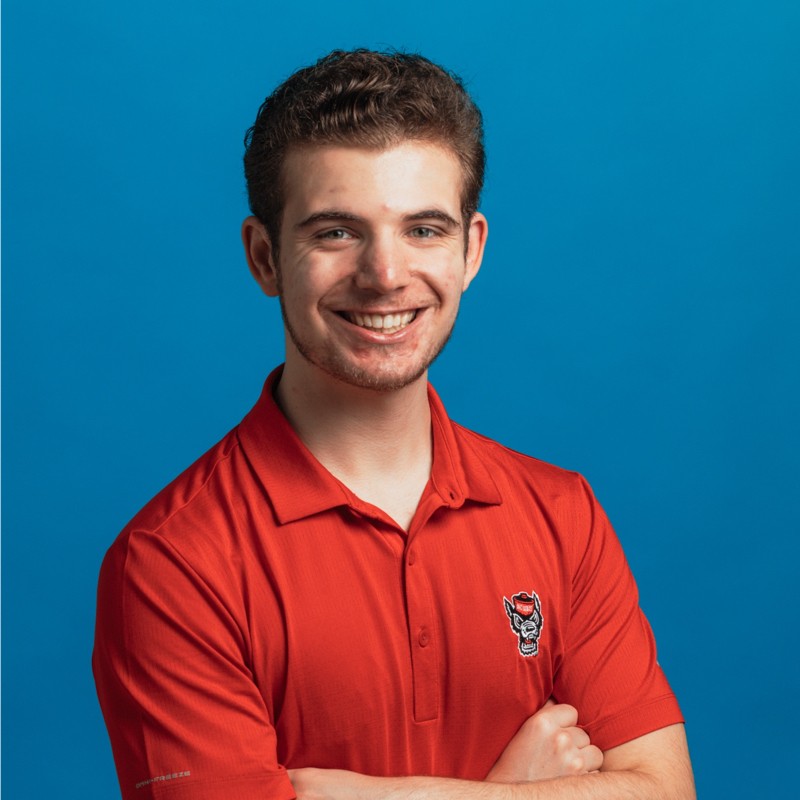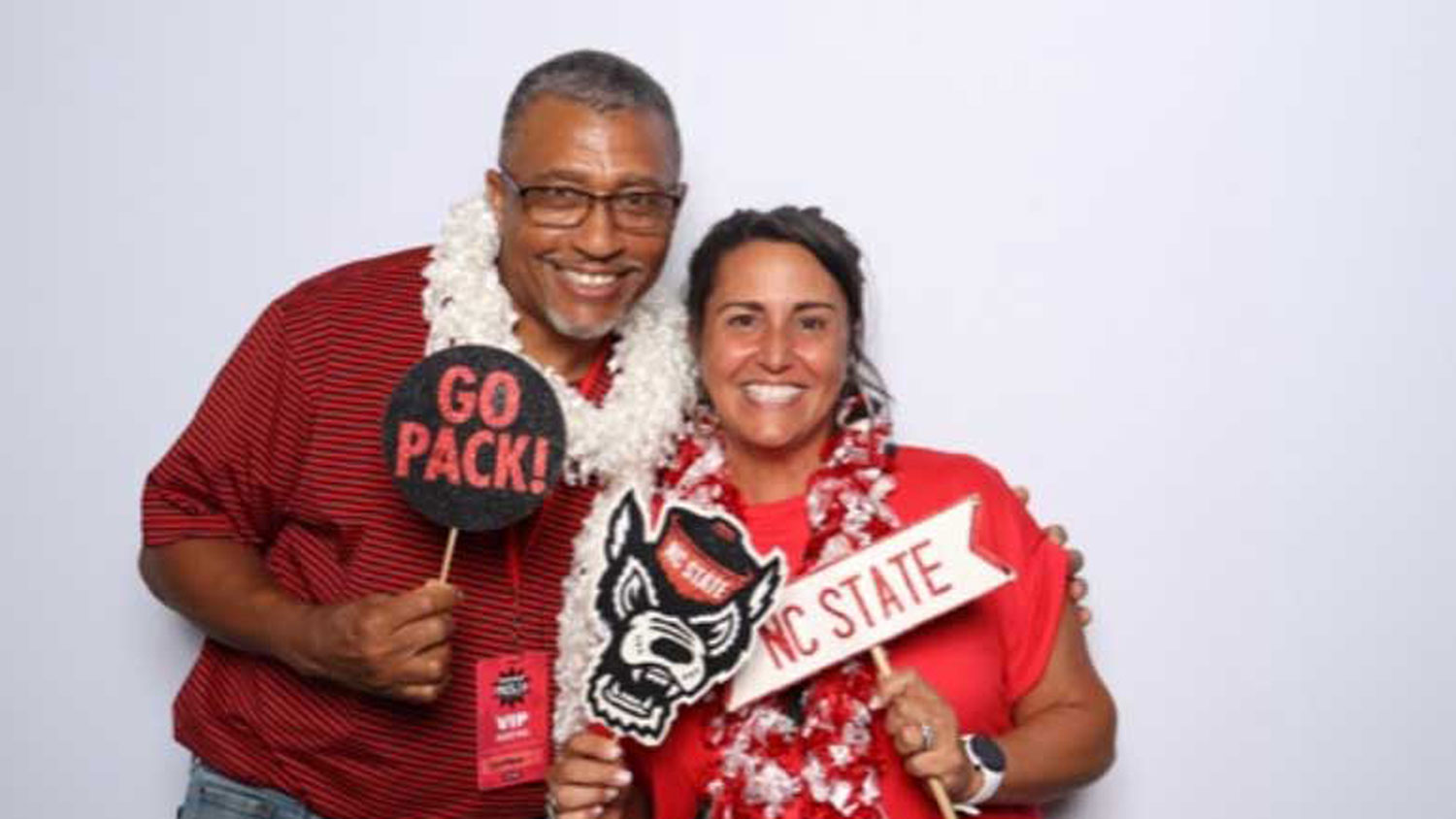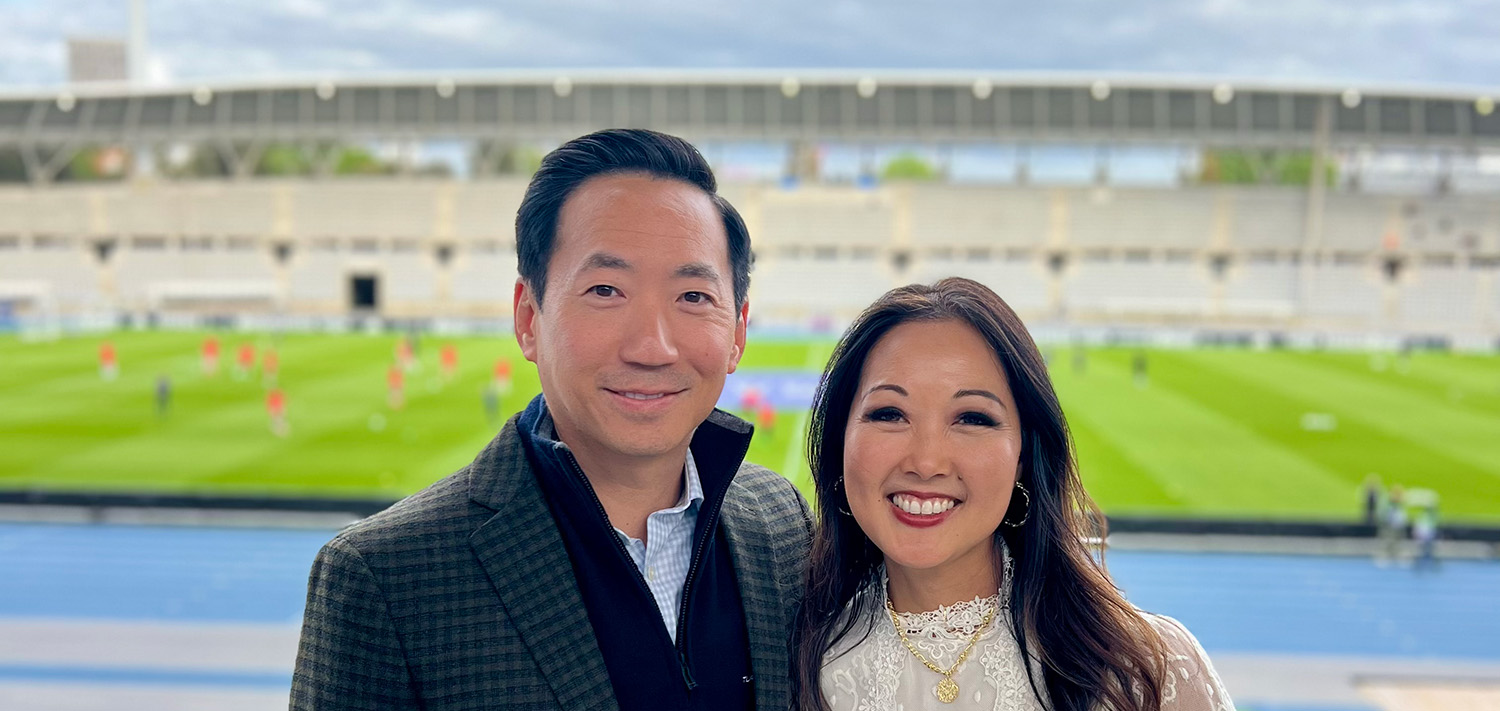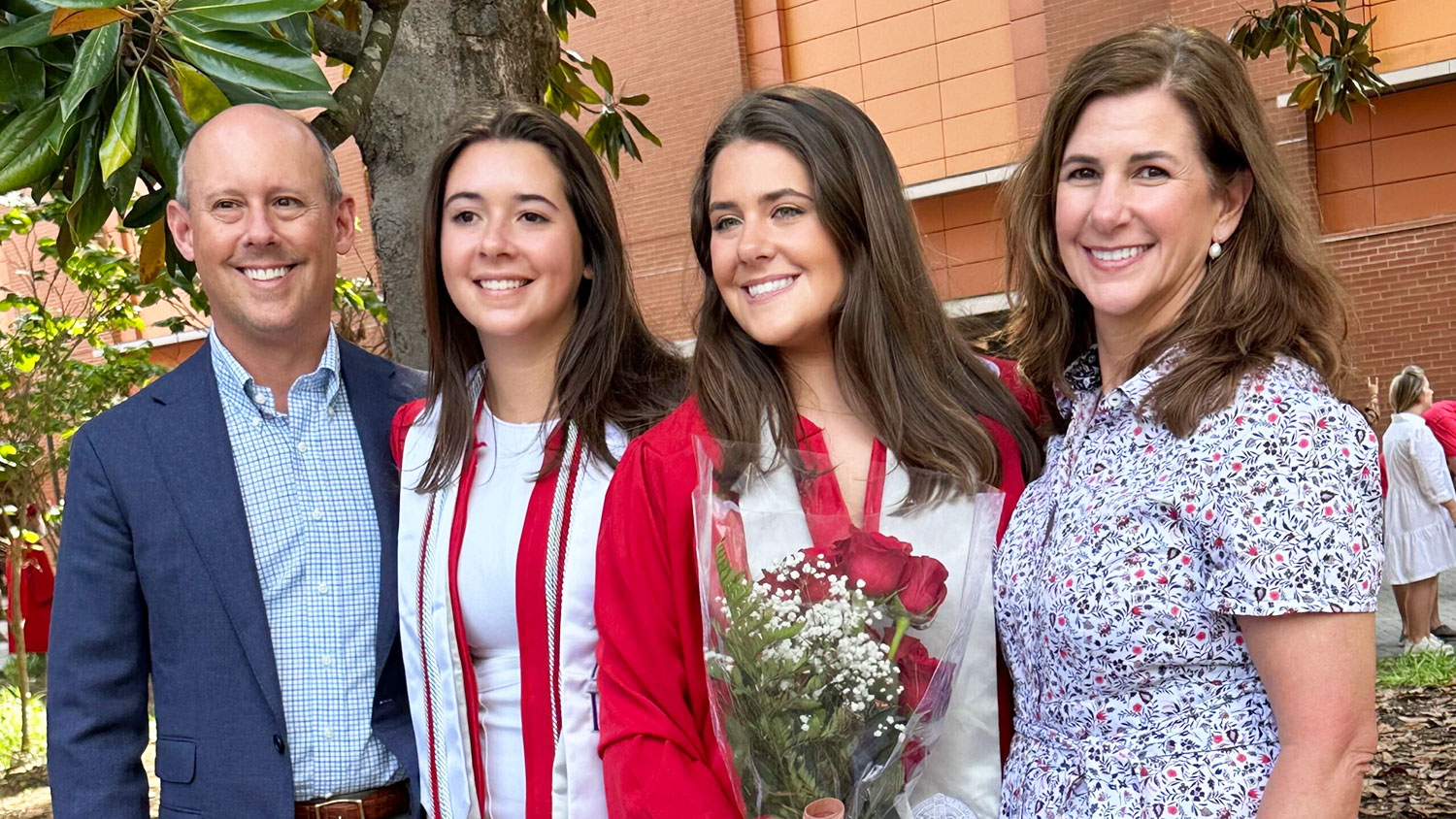Shipton Family Scholarship Supports First Generation Students
Being the first generation students themselves, Michael and Geelea Seaford Shipton will support future students with the new Shipton Family First Generation Opportunity Scholarship to be awarded beginning in fall of 2021.

By Lea Hart
Coming to North Carolina State University in the early 1990s from their hometown of Lexington, North Carolina was something Michael Shipton and Geelea Seaford Shipton call an eye-opening experience.
The now-married couple credit the impact of their college education – Michael in the Poole College of Management and Geelea in the College of Humanities and Social Sciences – with their career success today.
“It was the first opportunity I had to be exposed to that kind of academic environment,” Geelea said. “It was one that opened our eyes to the world, and set us on the path to being successful adults.”
Firm believers in the “Wolfpack for life” mentality, the couple will support future students in having that same experience. They’ve established the Shipton Family First Generation Opportunity Scholarship, to be awarded beginning in fall of 2021 and supporting first generation students within Poole College of Management.
“It was the first opportunity I had to be exposed to that kind of academic environment,” Geelea said. “It was one that opened our eyes to the world, and set us on the path to being successful adults.”
“We both are first generation college students,” Michael said. “Our parents worked hard to facilitate this, and we’re very grateful to have had their support.”
“We also have a passion for higher education, and this was a great way for us to continue to support the university and to give back to someone who might not have the same access and support we had.”
Geelea also noted the couple was motivated by the increasing cost of tuition and the burden student loans can put on young graduates.
“Our endowment may not fund their entire education, but it can alleviate part of the financial burden that may keep some students from realizing their full potential,” she said.
“We both are first generation college students,” Michael said. “Our parents worked hard to facilitate this, and we’re very grateful to have had their support.”
As the two advanced in their careers – Michael is senior vice president, Market Development and Customer Engagement at Syneos Health, and Geelea is associate vice president for communications at Duke Health’s Private Diagnostic Clinic – they’ve had the opportunity to meet, mentor and hire students from NC State. The NC State students they have encountered have impressed the couple with their discipline, creativity, and insights.
“It makes you feel confident about the future of our state and nation, and the contributions they will make to our global economy,” Michael said.
“Everyone should have the ability to reach their full potential. This scholarship is one way for us to provide a deserving young person who has similar life experiences as ours with the same opportunity we had to access college,” he continued.
Brian Clark, executive director of development and external relations at Poole College, noted the impact the gift will have on student success within the college.
“We’re excited to express our gratitude to the Shiptons for establishing the first generation scholarship,” Clark said. “This endowed scholarship will make a positive impact on the success of future Poole College students, and provides a special opportunity to those who are the first in their family to attend college.”
The First Generation Experience
There is an overlap in first generation students and those in need of financial support to attend college, said Tayah Butler, director of diversity and inclusion at Poole College.
“There are students who do not have the financial ability to pay for college, and then there are students who are first in their family to attend,” Butler said. “The challenges those groups would face individually is then compounded in that overlapping population.”
First generation students also face social and emotional challenges in navigating the college environment, she said. Students who cannot draw from experience of previous generations having attended college may often need mentorship and guidance as they navigate their college experience. As Butler works to assist these students, she said she’s also looking to see that they’re developing a healthy social circle to support them on campus.
There is an overlap in first generation students and those in need of financial support to attend college, said Tayah Butler, director of diversity and inclusion at Poole College.
Those who are minorities often face their own unique set of challenges as well, Butler said, acknowledging those students must navigate racialized discrimination and unconscious bias at the same time.
“A student who comes from a low socioeconomic group – their challenges are unique; finding enough energy to focus on classwork, and forming relationships off campus to work, all of which can hinder relationships on campus,” Butler said.
The Shipton’s support will help ease the financial challenges for first generation students, and can also have a positive impact on equity and diversity, Butler said.
For example, of the students who entered as first-time freshmen in fall of 2019, roughly four percent of white identifying students were the first in their families to attend college, Butler said, while among their peers of color, 25 percent of those new students were first in their families to attend college.
“Awarding scholarships to those who are first in their family is really a way to impact equity,” she said.
This is 100 percent aligned with the university and Dean Frank Buckless’ vision to increase diversity across the university and within Poole College, Butler said.
It can also boost much needed confidence, said Terry Price, student records and academic programs coordinator for Poole College. Sometimes first generation students won’t even apply for a scholarship, already having the mentality of “I’m not good enough,” she said. The Shiptons’ choice to designate a scholarship focused solely on first generation students may give some the push or the confidence they need to apply.
“If they do get it, it can boost their confidence to apply for other scholarships as well – maybe they’ll choose to apply for one to study abroad,” Price said. “It can be a stepping stone, and change that mentality and mindset – you are worthy of the scholarship.”
Price pointed to other benefits in addition to easing a student’s financial burden as well. Putting a scholarship on their resume, for example, can show promise to potential employers.
“I come from a low income family,” Nunez said. “Making it to a university, coming from poverty, and making a name for myself to help out myself and my family is all I have ever wanted and hope to do one day.”
Those first generation students who come from low income backgrounds, such as Josue Nunez, a Poole College freshman and the recipient of the Bruce Lowe Memorial Scholarship can speak to the impact scholarship has made on their lives.
“I come from a low income family,” Nunez said. “Making it to a university, coming from poverty, and making a name for myself to help out myself and my family is all I have ever wanted and hope to do one day.”
Poole College senior and first generation student, Zak Selwaeh, was also a scholarship recipient. His father had come from Syria where his family of eight had almost nothing. Though his dad tried to attend community college, Selwaeh said the weight of tuition and sending money back home to help his family was too much and he dropped out. Selwaeh said he was fortunate as a child to have food on the table and a roof over his head but there was no extra money.

“My mom and dad jumped and screamed with me as I read my acceptance letter, but I knew they were worried that I would not be able to attend due to all the costs,” Selwaeh said.
Support from donors also made Selwaeh’s scholarship possible, and changed his trajectory in life. To them he extended his thanks.
“My mom and dad jumped and screamed with me as I read my acceptance letter, but I knew they were worried that I would not be able to attend due to all the costs,” Selwaeh said.
“Because of everything you’ve done to help students in situations like mine, I can proudly say in four years that I will be the first in my family to graduate college, let alone NC State,” he said. “But more importantly, you have helped me and my family to be able to call this place home.”
Looking ahead: Sept. 16 Day of Giving Places an Emphasis on Student Support
Support like that from the Shiptons will be one area of focus during the one-time September fundraising event, NC State Day of Giving: Stronger as a Pack – held on Sept. 16, 2020 – serving as an opportunity for the university’s greater community to come together to support student success and NC State as a whole.
NC State Day of Giving is a daylong fundraising event bringing together the entire Wolfpack community to maximize its collective impact through challenge matches and competitive spirit.
The university recently announced that it met its fundraising goal two years early for the Think and Do the Extraordinary Campaign. This year’s Day of Giving continues to be of great importance as ongoing fundraising efforts continue to make the university more competitive and create additional resources that supplement the university’s state appropriations.
This next phase of the campaign, in particular, is focused on student support, especially those from rural communities, those who are the first in their families to attend college and those from groups underrepresented in higher education.
Gifts of any size, starting at $10, will combine into this year’s theme, Stronger as a Pack, which in particular addresses:
- Time-sensitive needs related to the pandemic
- Ongoing financial need through scholarships
- Creating a more inclusive campus/campus experience to ensure students have equitable access to opportunities and resources
- Promoting diversity through investing in the centers, initiatives and programs that help each student find their place in the Pack
- Categories:


